/Hotwaterheatingsystem-GettyImages-560123585-59b2fe12685fbe00114edf85.jpg)
Installing an Instant Hot Water Recirculating System
Hot water recirculation systems provide near-instant hot water access, so you don't have to wait for the water to heat every time you use a faucet or appliance. A hot water recirculation system creates a loop between the water heater and the faucet, and unused water quickly loops back for reheating.
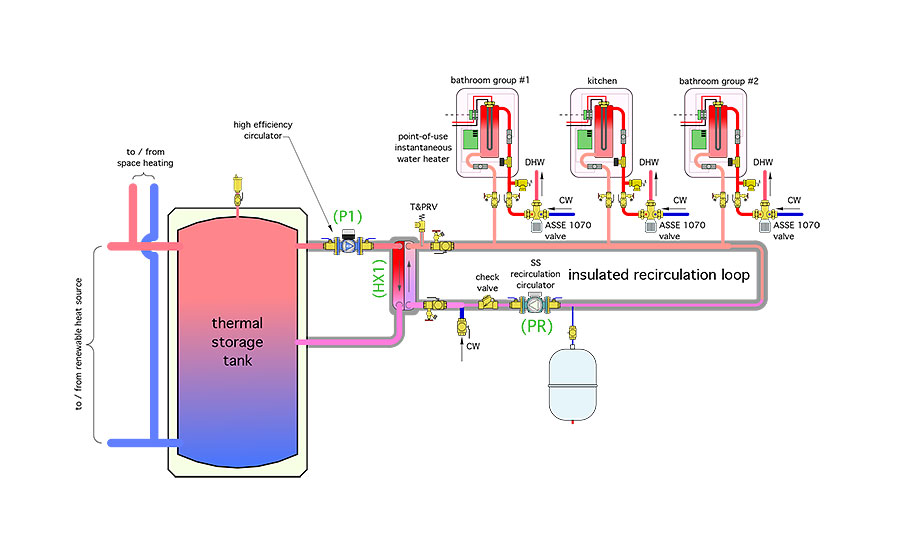
High Rise Hot Water Recirculation System Design
described in "Hot Water Circulation Systems" in Plumbing Engineering Design Handbook—Volume 2, Chapter 6—Domestic Water Heating Systems. Actual service conditions (e.g. surge pressures, water quality, installation methods, use patterns, localized stresses) can affect the service life of the PEX.

How Does A Hot Water Recirculating Pump Work Domestic Hot Water
Adding a return line to the domestic hot-water system creates a closed-loop path that allows the water to circulate back to the water-heating source to keep the lines warm when fixtures and other loads are not in use.

Dedicated Loop, Hot Water Recirculation System Inspection Gallery
Hot water recirculating system. A dedicated return line is installed that connects the furthest hot water fixture in the home back to the water heater. This line allows hot water to circulate continuously back to the water heater in a continuous loop. A recirculation pump is installed on the hot water return line, typically near the water.
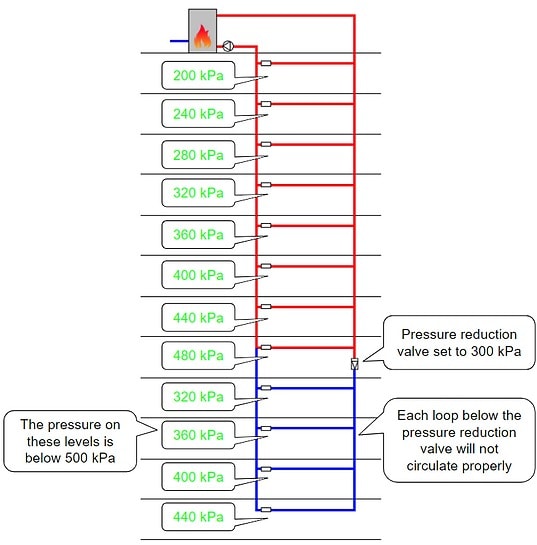
How To Design Hot Water Recirculation Systems
1. A switch or motion sensor located near each fixture activates an energy-efficient circulation pump. 2. The pump houses a temperature sensor and a check valve that prevents water from entering the return line. The pump moves water that's sitting in the line back to the water heater.
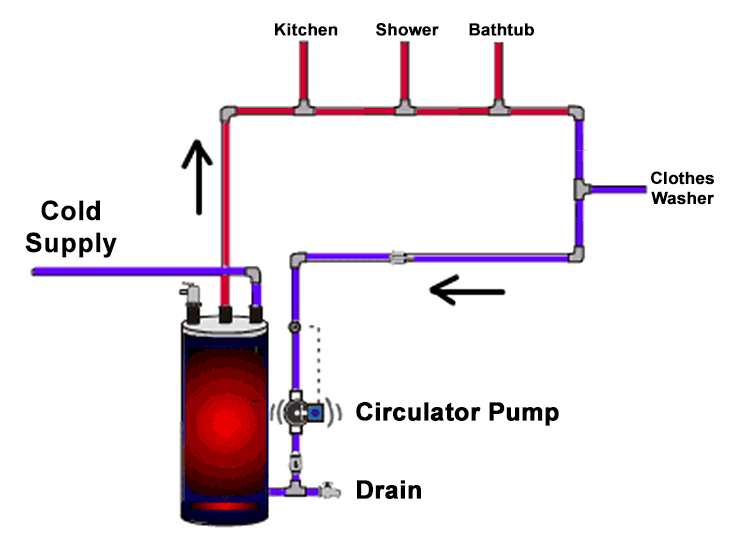
Stunning Circulating Hot Water Heating System 16 Photos Home Building
A hot water recirculating system is a way to bring hot water directly to the faucet when needed, and if it goes unused, it gets returned to the hot water heater. A recirculating pump is installed in the plumbing lines to create a loop that slowly and constantly circulates the water in the hot water pipes back into the water heater for reheating.

How To Design Hot Water Recirculation Systems
The whole idea of a "recirc" system is to provide hot water quickly to the person at the fixture. When water moves through the hot water piping system, it loses heat to the space through the insulation or pipe wall if no insulation. If there is no demand or flow rate in the piping system, the water will eventually drop to the ambient temperature.
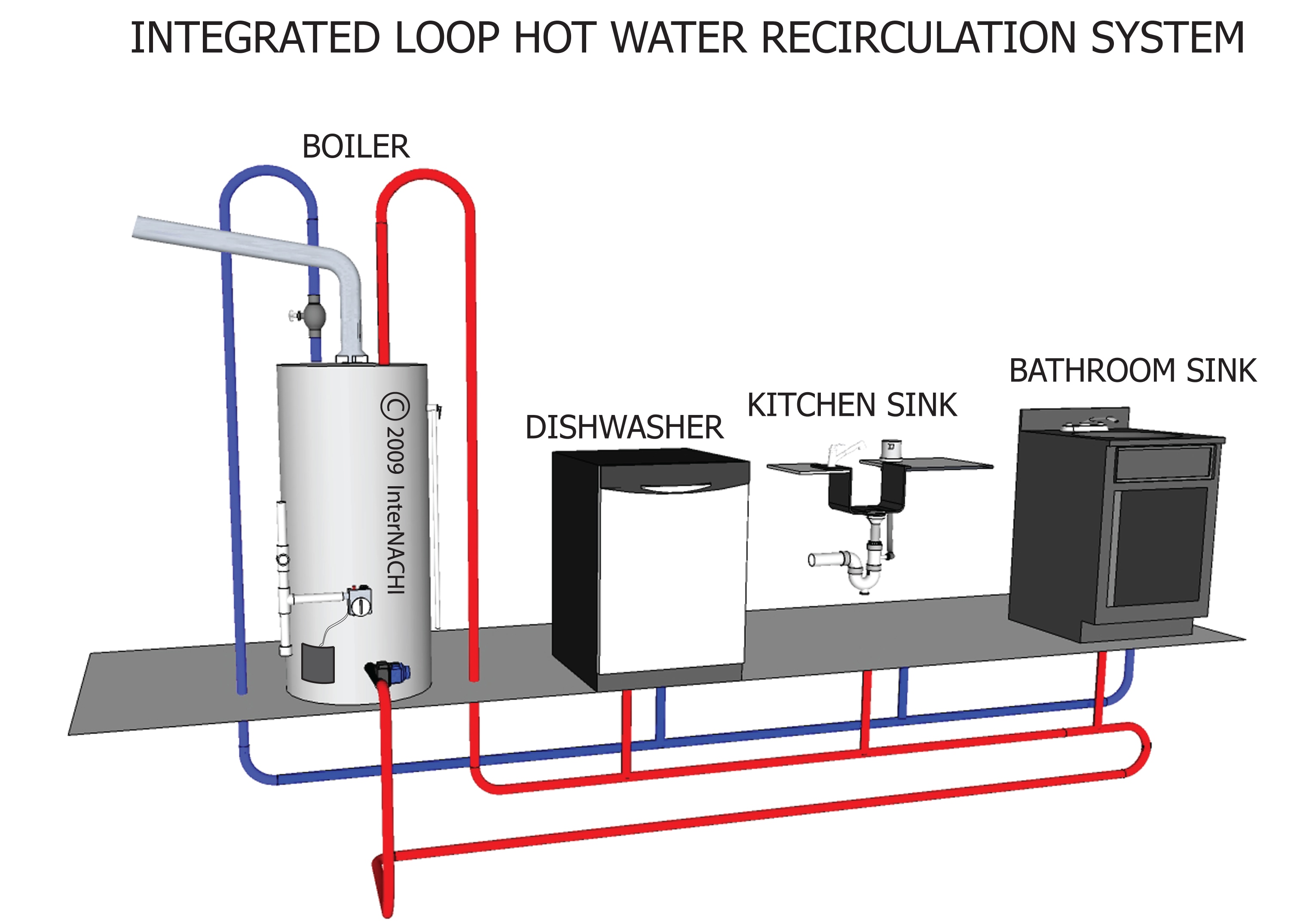
InterNACHI Inspection Graphics Library Plumbing » Kitchens and
A hot-water loop uses a small pump to circulate hot water between a water heater and a distant bathroom or kitchen. Creating the loop is fairly easy; however, doing so in a way that doesn't waste a lot of energy is a little trickier. A continuously operating pump is clearly wasteful.

What are Hot Water Recirculating Pumps?
Designing a domestic hot water recirculation system is not typically difficult. In fact, we see the exact same model recirculation pump used in application after application without incident, as this one pump is typically able to meet the minor head and flow requirements of most recirculation systems.
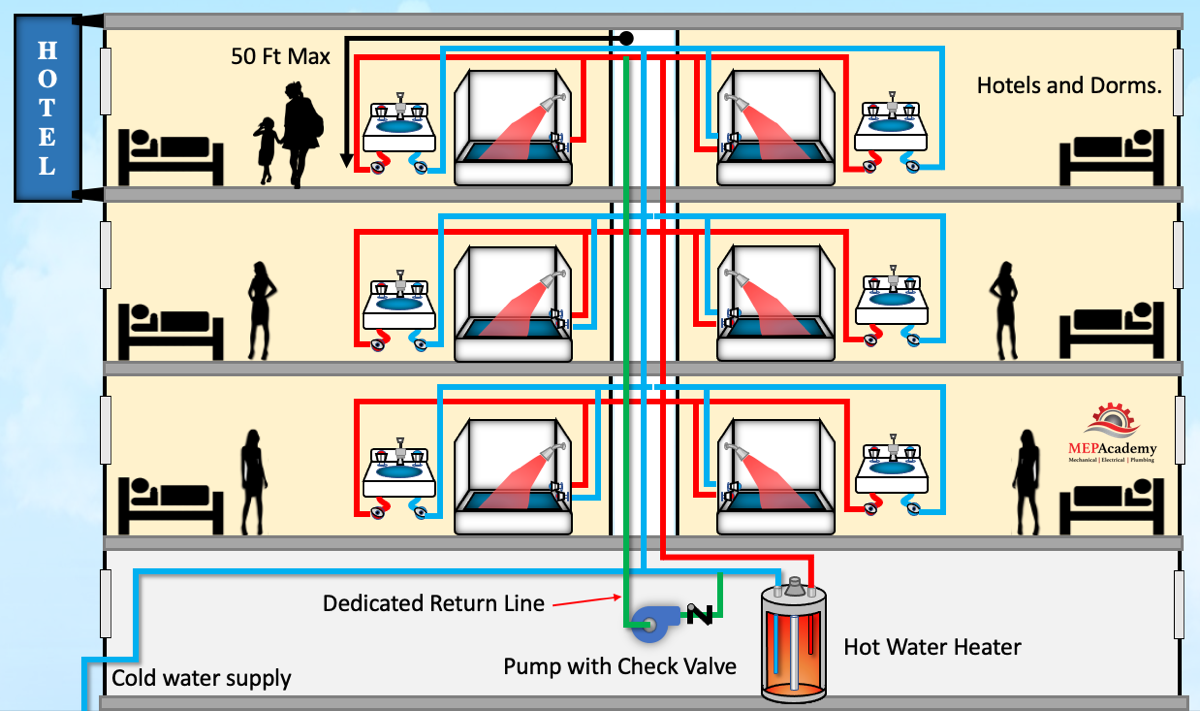
Domestic Hot Water Recirculation System MEP Academy
1. Describe the components of a domestic hot water recirculation system. 2. Select the proper size water heater for your system. 3. Understand the differences in fixed- vs. variable-speed pumps and how to select the right pump for the system. 4. The importance of balancing a recirculation system and the variety of balancing valve options available.
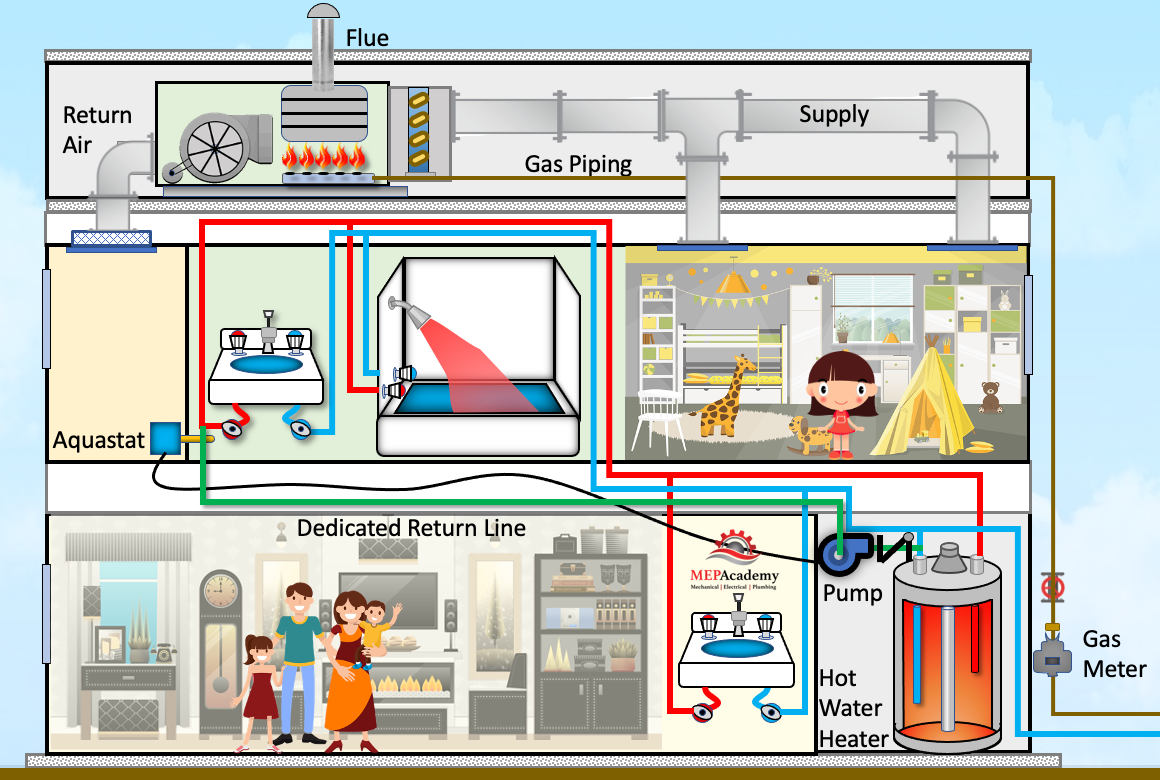
Domestic Hot Water Recirculation System MEP Academy
Step 1 - What is a hot water recirculation system? Lets start with understanding the basics of hot water recirculation systems. Have you ever waited a long time for hot water to come out of the tap? It is likely that the long wait is because the building has a dead-leg hot water system.
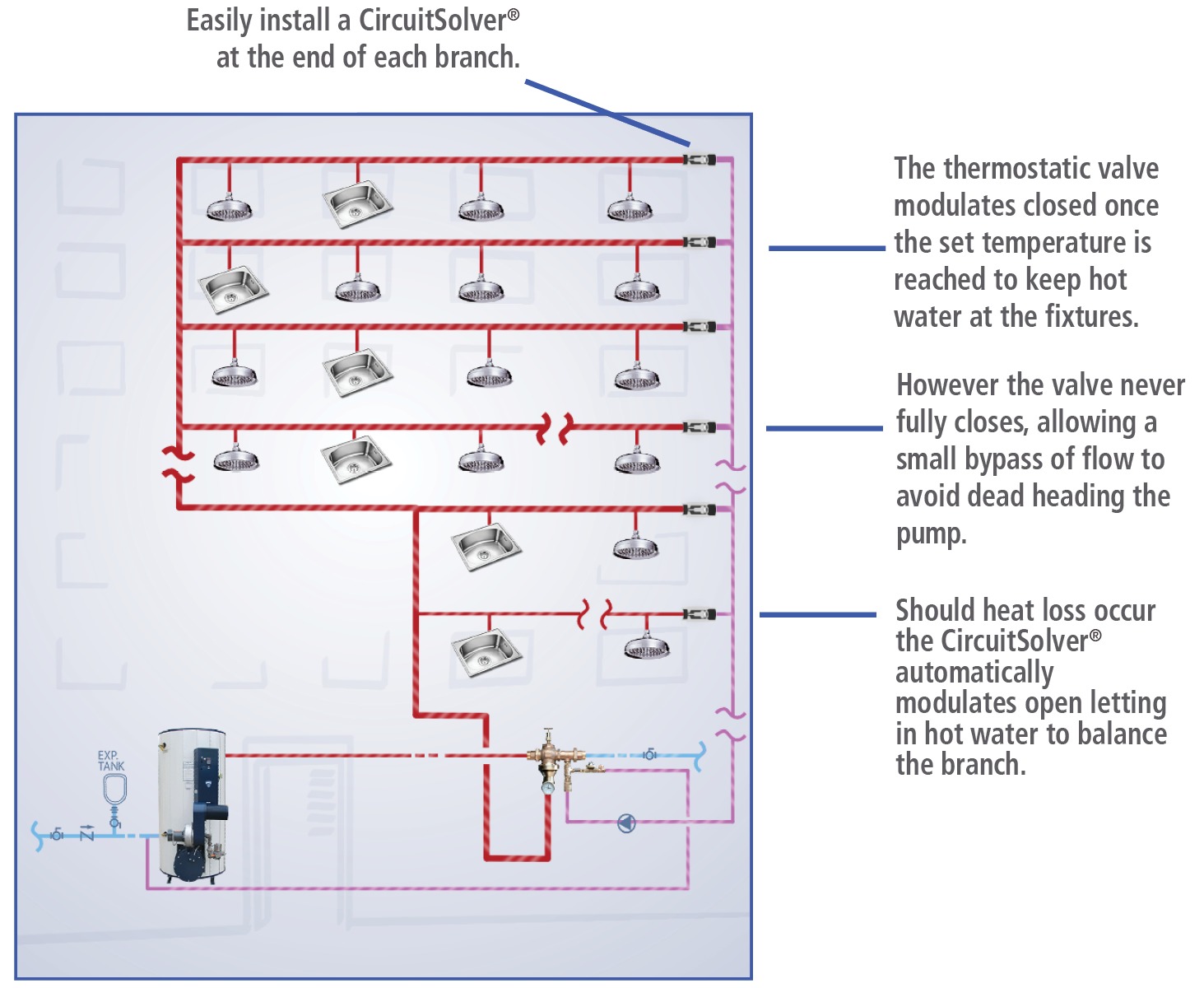
CircuitSolver Domestic Hot Water Recirculation Balancing Valve
February 6, 2017. Ron George. Domestic hot water systems have been installed in buildings for many years dating back to ancient times. Recirculating hot water systems are not quite that old. Gravity hot water circulation began in the U.S. in the late 1870s, right after plumbing moved indoors. During the early years, water and space heating was.

How to Install a Hot Water Recirculating System [The Original Plumber
Domestic Hot Water Recirculation Systems Design Considerations - Self Balancing Valves and Problems with Flow Devices Presented By: Tom Ruggierio Overview Elements of a recirculating DHWS Introduction of applicable codes Legionella Design Considerations Balancing Why Methods
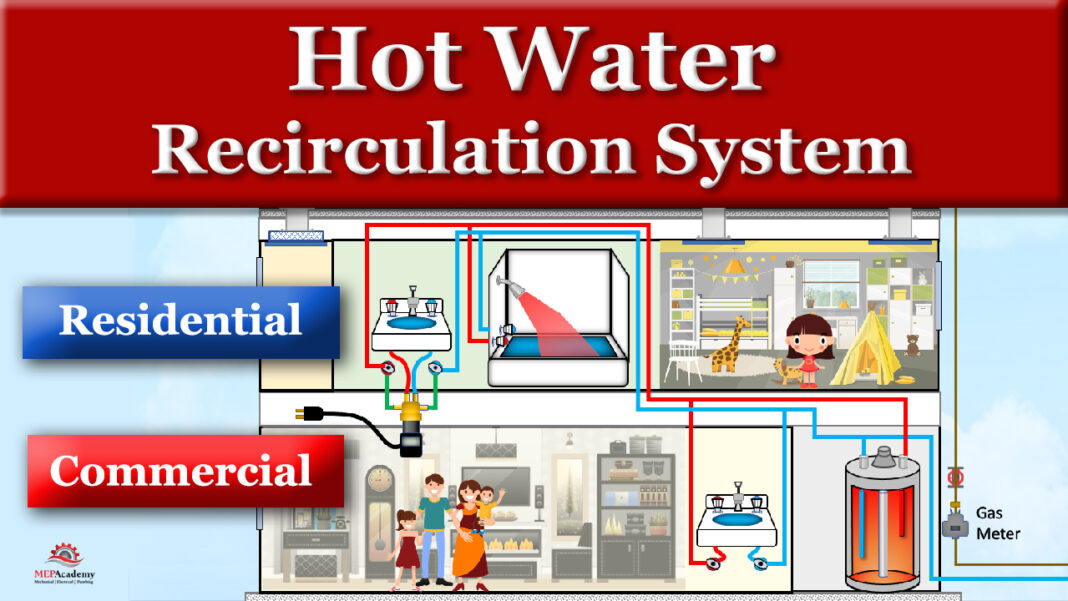
Domestic Hot Water Recirculation System MEP Academy
Guide to Recirculating Systems Recirculating Systems Explained A thorough examination of recirculation systems for hot water and heating your home It's early morning, and your routine begins. How cold does the bathroom floor feel under bare feet? How long does the shower run before any hot water actually comes out?

How Does A Hot Water Recirculating System Work Design Talk
The video below demonstrates how simple it is to design a hot water recirculation system using h2x, and includes the following: How to Set Calculation Parameters Insulation type and thickness Maximum velocities Pipe materials Delta T between flow and return How to Add Hot Water Plant How to Draw Pipes and Set Pipe Heights
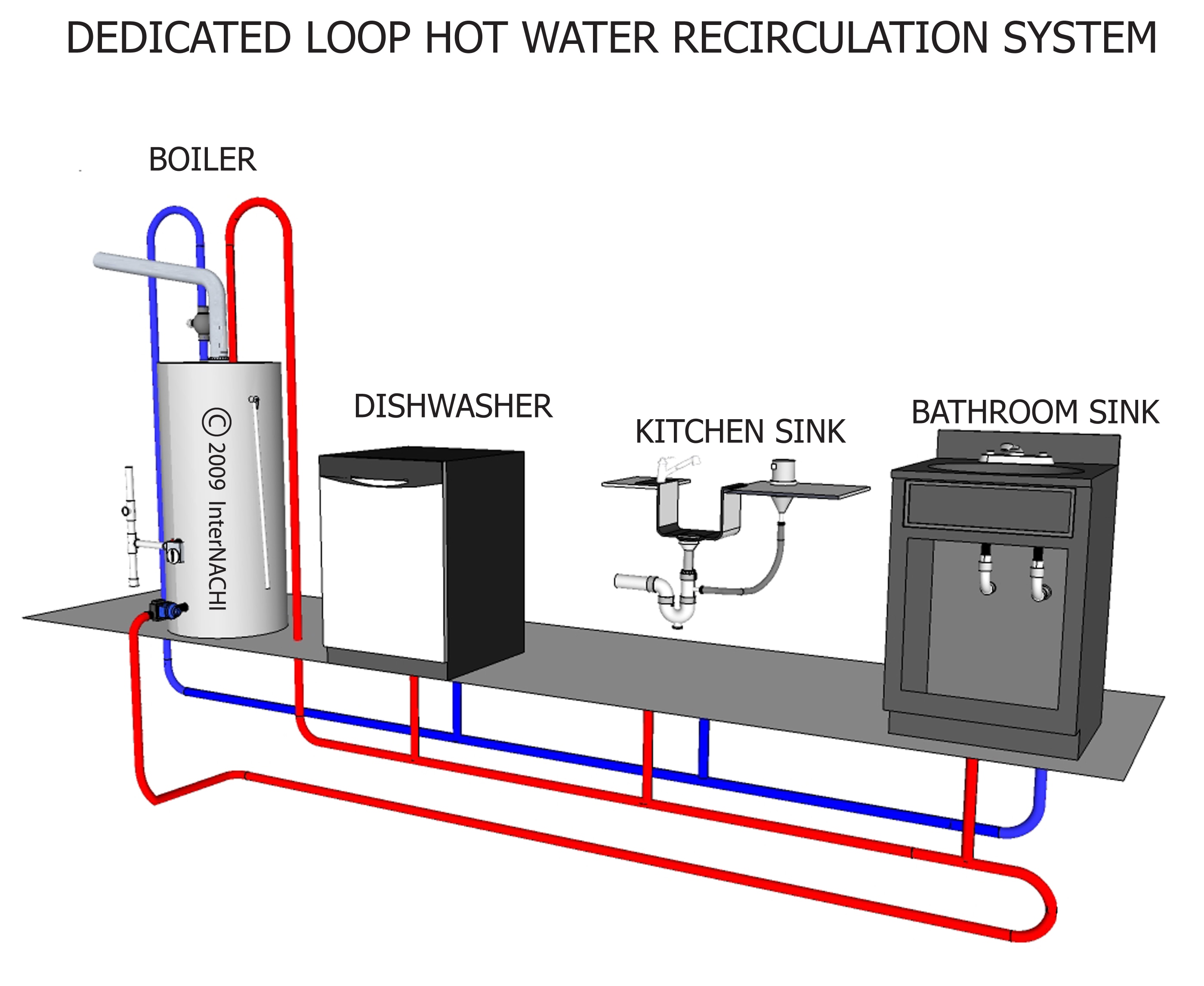
Dedicated Loop, Hot Water Recirculation System Inspection Gallery
Hot Water Recirculation Design? Using the suggestions above, our example will require a pump for 8 GPM. Since the BTUH loss of the system remains at 25,200 BTUH, the temperature drop at the end of the farthest fixture would be 6.3°F rather than 10°F. This means the water will be warmer for the first person to open the faucet.